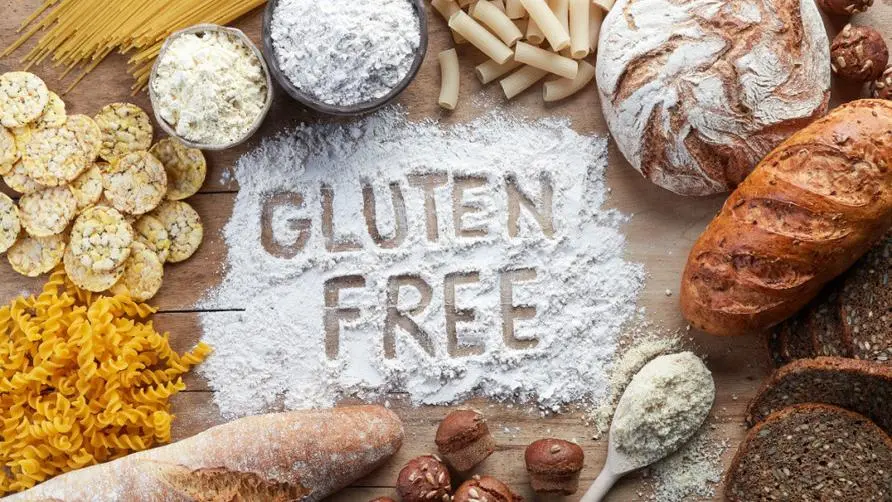It's not just gut health that's ruined! Doctors reveal 3 landmines of "high-calorie diet" may cause arteriosclerosis

High-calorie diet damages intestinal health and may damage colon mucosal barrier
Modern people’s diet is nutritionally uneven, and long-term intake of “high-calorie” dietary content is more likely to affect the balance between bacteria and the intestines. Nephrology doctor Wang Jieli posted on the social media that according to a review article in the authoritative journal “Science”, it compiled the known facts about the relationship between bacteria and the intestines so far, and also pointed out the three major reasons why high-calorie diet destroys intestinal health. Problem oriented.
One of the most obvious problems with high-calorie diets is that the diet composition often tends to be “low-fiber”. Dr. Wang Jieli pointed out that low-fiber diets are prone to lack of indigestible polysaccharides. Taking Thai immigrants to the United States as an example, the polysaccharides in their diets are reduced, resulting in changes in the fecal microbial structure. The Prevotella strain specialized in metabolizing fiber was replaced by Bacteroides, which metabolizes mucus polysaccharides produced by the host. This change will lead to erosion of the colon mucosal barrier and destroy the mechanisms that protect epithelial cells.
Another problem with a high-calorie diet is the easy intake of “high sucrose” and high fructose. Dr. Wang Jieli said that if you consume a high-sucrose or high-fructose diet for a long time, the excess sugar cannot be absorbed by the small intestine. After entering the large intestine, it will increase the Firmicutes bacterial flora. Long-term high-sucrose diet will increase the number of “mucus polysaccharide-degrading bacteria” and further damage the colon mucosal barrier.
Eating too much saturated fatty acids can lead to changes in the environment in the large intestine and cardiovascular disease
High-calorie diets are usually related to “high-fat” dietary composition. High-fat not only affects the intestines, but also increases cardiovascular burden. Dr. Wang Jieli explained that a high-fat diet will directly damage the function of immune cells, because saturated fatty acids will cause an increase in mitochondrial hydrogen peroxide, causing an increase in oxidative stress and reducing mitochondrial gland function. This results in a decrease in colonic mucus-secreting cells secreting mucus and an increase in oxygen in the large intestine. Eventually, oxygen and nitrates in the large intestine increase, affecting the balance of intestinal bacteria and further promoting the occurrence of cardiovascular sclerosis.
Dr. Wang Jieli reminds that excessive intake of saturated fatty acids, which exceeds the capacity of the small intestine to absorb, will cause an increase in oxygen in the large intestine. The normal large intestine should be an anaerobic environment. Changes in the oxygen environment will cause changes in intestinal flora, which will also promote arteriosclerosis. The incidence rate increases.
Current research also believes that to study intestinal bacteria, we should not only focus on bacterial parameters, but also measure the oxygenation inside the intestine and determine the normal values for each section of the intestine. If the oxygen value in major parts of the intestine, such as the large intestine, is abnormal, it can be used as the definition of intestinal dysbiosis.
Taiwanese people only consume 50% of their daily fiber intake, with fruits, vegetables and whole grains being essential.
The impact of intestinal bacteria on health has become a health issue that all walks of life pay attention to. However, Taiwanese people have an uneven diet and a Westernized diet is prevalent. Insufficient fiber intake is quite common. Insufficient dietary fiber intake will affect the balance of intestinal flora, leading to Negative effects on metabolism and immunity, and even increase the risk of chronic inflammatory diseases (such as inflammatory bowel disease).
Taiwan Health Promotion Administration reminds that gastrointestinal health is closely related to dietary fiber intake. Sufficient dietary fiber can promote intestinal peristalsis, provide a source of energy for intestinal flora, help intestinal probiotics grow, and maintain intestinal health. However, the average dietary fiber intake of Taiwanese people is below the recommended amount. Currently, the daily fiber intake of Taiwanese people over 19 years old, regardless of gender, is 13-18 grams, which is only 50% of the recommended amount of 25-30 grams.
Good dietary fiber can be obtained from consuming more natural vegetables and fruits, and whole grains (brown rice, whole wheat products) and unrefined cereals are important sources. Among unrefined whole grain foods, the number one ingredient with higher dietary fiber content is “red beans”, followed by mung beans, corn, pumpkin, oatmeal, taro, sweet potatoes, potatoes, yams, brown rice, etc. wait.
The Taiwan Health Promotion Administration reminds us that each meal of whole grains should be about larger than a fist, and paired with vegetables slightly larger than a fist, and fruits as big as a fist, can help to absorb enough dietary fiber and adjust intestinal function.
Source:
The microbiome and gut homeostasis
Exploring the effects of dietary fiber on gut microbiome and inflammatory diseases
Further reading:





